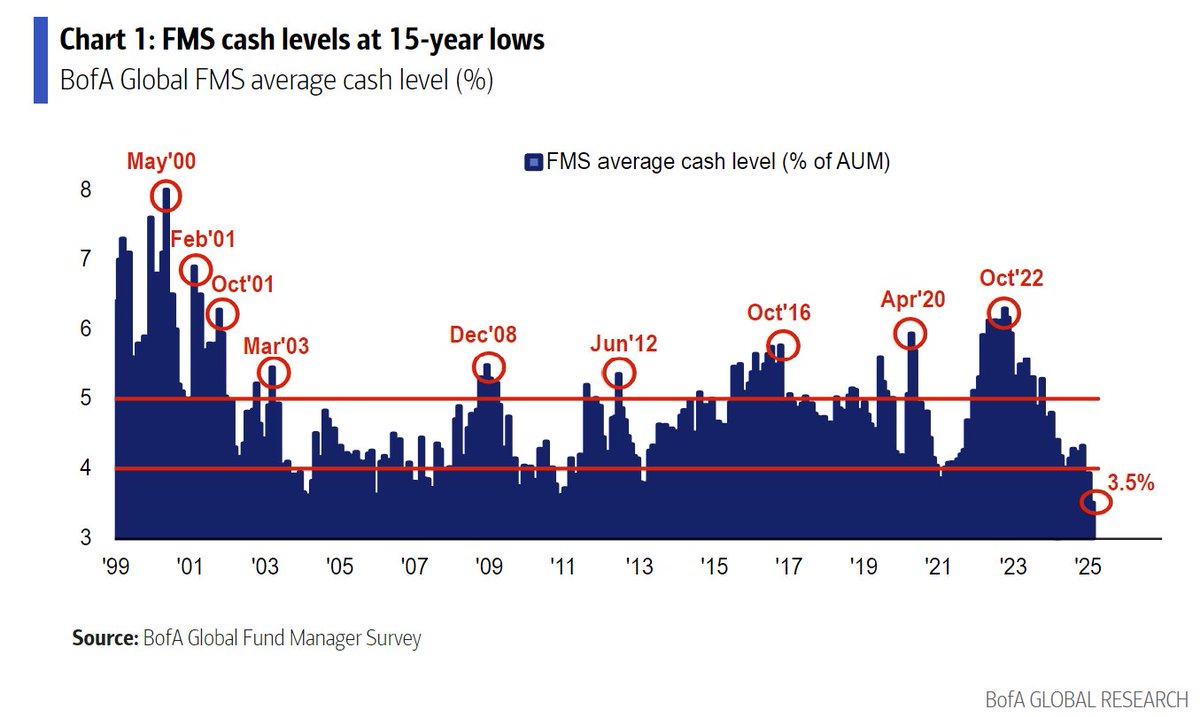1/ Are we at the similar point in time to the late 1990s?
Tech sector started rising in an exponential trend around 1997/98 while it was already fully priced.
The risk was high.
However, during the next 3 years the bubble kept inflating & eventually peaking in March 2000.
Tech sector started rising in an exponential trend around 1997/98 while it was already fully priced.
The risk was high.
However, during the next 3 years the bubble kept inflating & eventually peaking in March 2000.

2/ Was it wrong to hold onto tech stocks at that point in time?
For speculators & traders, it wasn’t wrong at all because they continued to ride the trend higher for the next couple of years.
The question is: how many successfully rode it up to the peak & got out in time?
For speculators & traders, it wasn’t wrong at all because they continued to ride the trend higher for the next couple of years.
The question is: how many successfully rode it up to the peak & got out in time?
3/ Long term investors, especially those focused on value, approach things in a different manner.
Once they commit capital, they hold on with a 10+ year time horizon.
In hindsight, the bet was wrong as 15 years would pass without any positive returns by the tech sector.
Once they commit capital, they hold on with a 10+ year time horizon.
In hindsight, the bet was wrong as 15 years would pass without any positive returns by the tech sector.
4/ It is clear that there are no universal right or wrong answers when investing.
Almost everything is subjective and on a case by case. What works for you might not work for others.
It really all depends on your investment mandate, skill set, risk tolerance & time horizon.
Almost everything is subjective and on a case by case. What works for you might not work for others.
It really all depends on your investment mandate, skill set, risk tolerance & time horizon.
5/ No matter which way you slice it or dice it,
Growth being overly expensive vs value, tech stock nosebleed valuation & investor sentiment overwhelmed by greed like in the late 90s,
It is clear that tech is fully priced & very risky.
Growth being overly expensive vs value, tech stock nosebleed valuation & investor sentiment overwhelmed by greed like in the late 90s,
It is clear that tech is fully priced & very risky.
6/ Does that mean it cannot go up further?
Of course not.
History provide clear lessons that bubbles run further than anyone of us think they will.
From 1997-2000, is a clear example of that.
But the further it goes, the more risky the investment becomes over the long run.
Of course not.
History provide clear lessons that bubbles run further than anyone of us think they will.
From 1997-2000, is a clear example of that.
But the further it goes, the more risky the investment becomes over the long run.
7/ For us, it isn’t a good buy, because the risk over the long term (and that’s the key for our investment mandate) is far too high.
As Howard Marks once said:
“Investment success doesn’t come from “buying good things,” but rather from “buying things well.”
#buylow
#sellhigh
As Howard Marks once said:
“Investment success doesn’t come from “buying good things,” but rather from “buying things well.”
#buylow
#sellhigh
• • •
Missing some Tweet in this thread? You can try to
force a refresh















